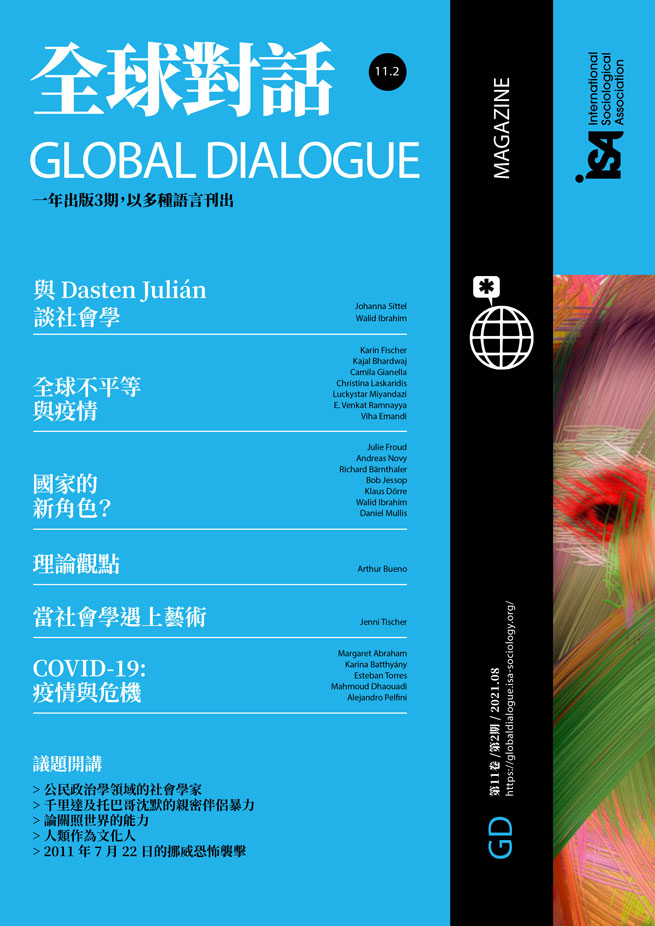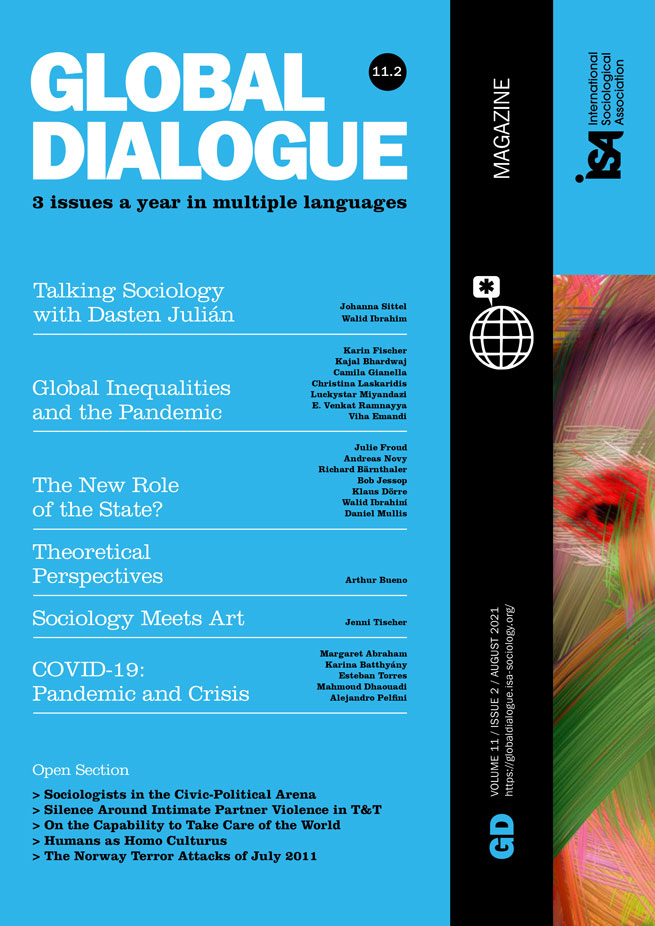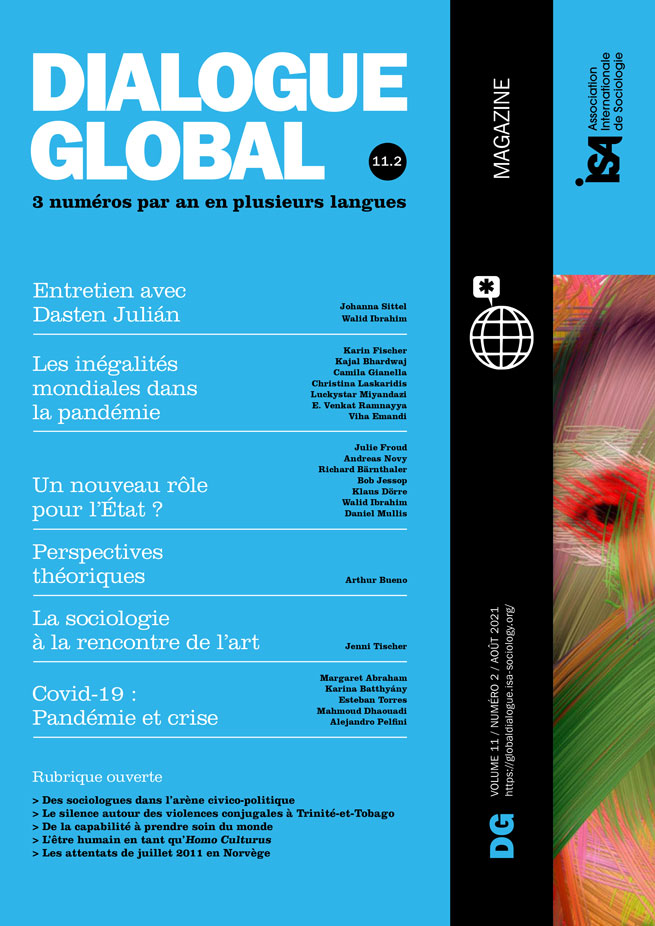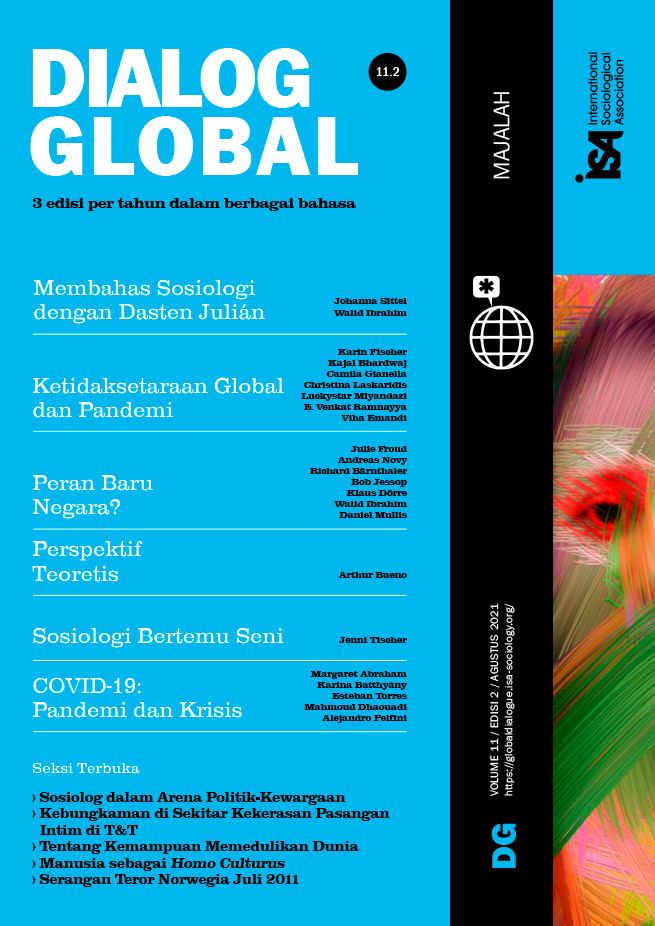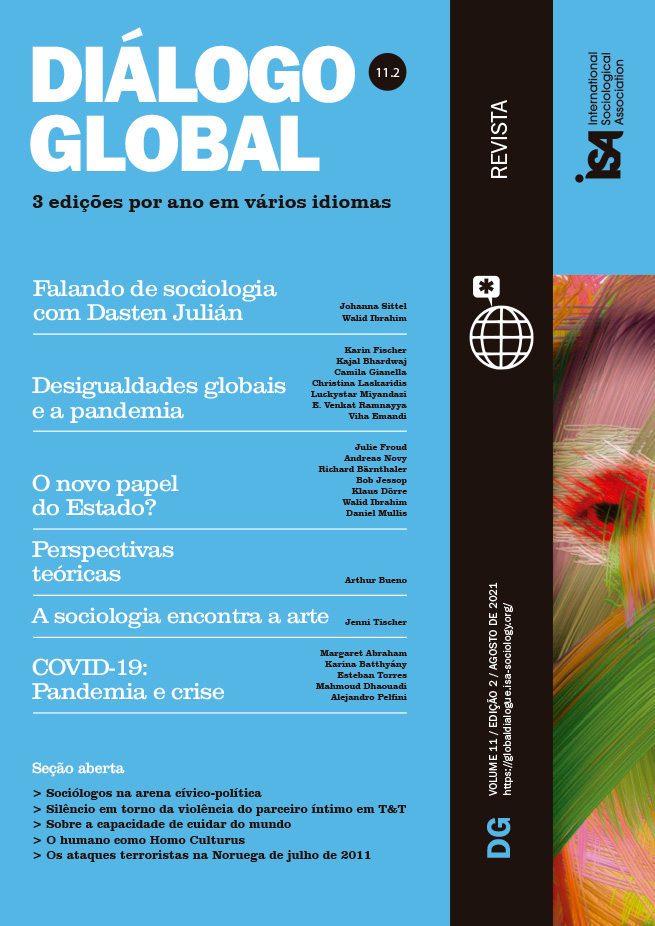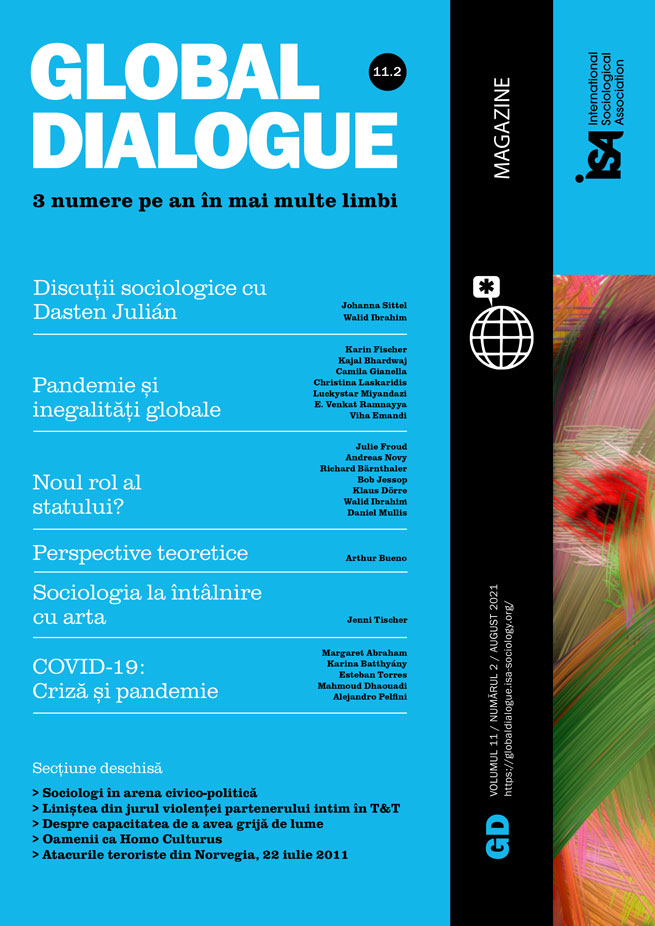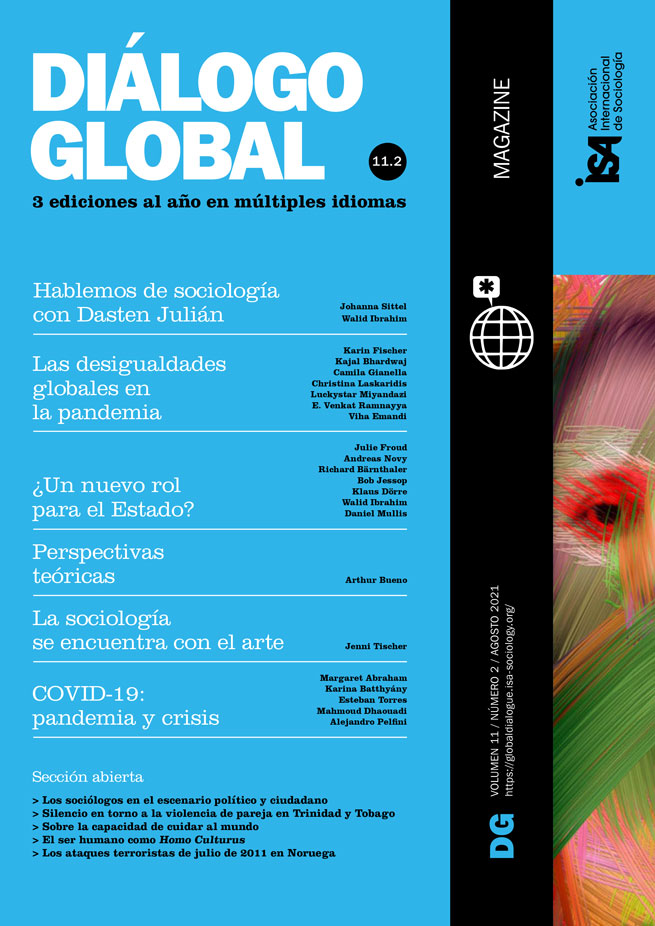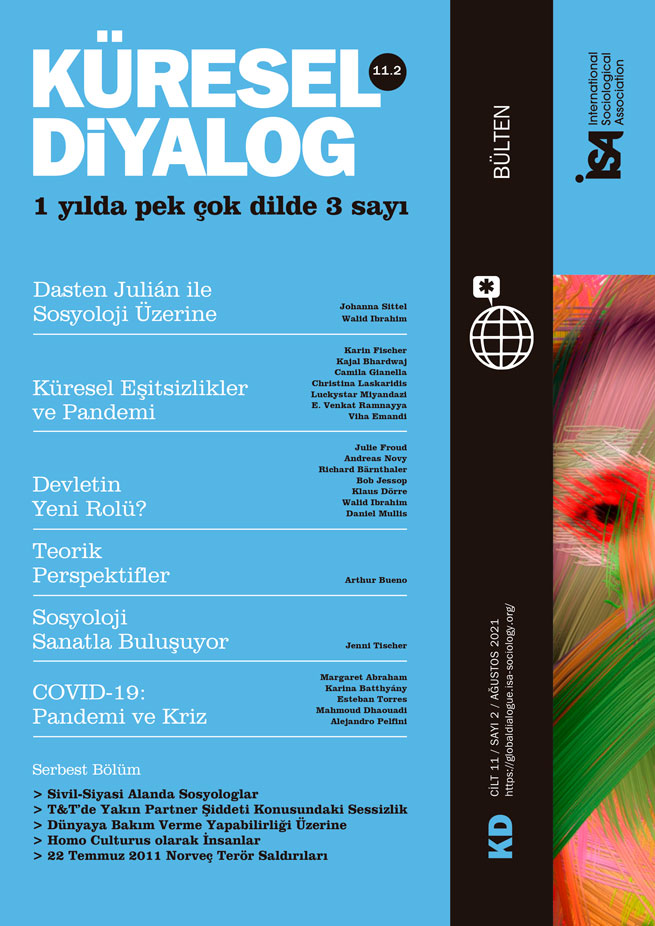The Leviathan is back! This is how one could summarize what is currently happening in parts of the world due to the Corona pandemic. In his seminal work, Leviathan, or the Matter, Forme and Power of a Commonwealth Ecclesiasticall and Civil, Thomas Hobbes chose the analogy of a sea monster to express the contradictory nature of the modern state. During the era of neoliberalism, it seemed that the Leviathan was in retreat. This was never really true, of course, for even in Chile only a tyrannical state made possible the market-radical experiments of the Chicago Boys. Nevertheless, sociological social critique meant above all market critique. It was by no means a coincidence that Karl Polanyi became the academic chief witness for a double movement that initially amounted to a far-reaching disembedding of markets. Since the Corona pandemic, the pendulum has swung back. The Leviathan intervenes – as a state of emergency for the purpose of fighting the pandemic and at the same time as an economic interventionist state that invests trillions of dollars in countries and regions that can afford it in order to protect and, if necessary, rebuild the economy.
Assessing the Corona state
How is this state to be assessed? Systems theorists are irritated, because they had ruled out the possibility of a state actor that intervenes effectively in every social subsystem. Keynesian economists rejoice because government debt is now the means of choice to stimulate the economy. Liberal journalists, on the other hand, worry about the fundamental rights that the “Corona State” will suspend during the numerous lockdowns and shutdowns. So how should we assess this new state interventionism? As a preliminary answer, we venture the thesis that state interventionism may become the midwife of a “capitalism with a new face.” However, the Corona State is a hybrid, for it responds to pandemic and recession with two fundamentally different variants of state activity that are only loosely coupled to one another. COVID-19 is being handled by a state of emergency that, on the one hand, operates within the constitutional framework, and on the other hand, overrides the constitution by temporarily suspending fundamental rights. The only legitimation for the state of exception is the fight against the pandemic. The state enforces binding social distancing rules to prevent the rapid spread of the disease. In doing so it is responding to a medical catastrophe; yet as the pandemic becomes more manageable, it will lose its legitimacy. All those trends which certain analysts welcome in the present state of exception – deceleration of everyday life, renunciation of consumption, avoidance of travel, taking time to care for oneself and others – could after the pandemic’s end only be maintained on a voluntary basis. The recognizable urge to restore a pre-COVID-19 normality gives an inkling of how divorced from reality such analyses are.
The economic interventionist state must be assessed differently. The gradual move away from fiscal austerity, balanced budgets, the “Schwarze Null”[1] and – so far only hinted at – higher taxation on large assets and high incomes, represents progress compared to the market radicalism of earlier times. Nevertheless, the Corona State is no guarantee of a socio-ecological transformation that meets the United Nations’ Sustainable Development Goals (SDGs). In political-economic terms, it treads on thin ice, because even in rich countries, exorbitant public debt only works as long as central banks and financial markets play along and guarantee a low interest rate policy. This makes it all the more serious that the responsible state apparatuses are often characterized by a lack of imagination in economic and industrial policy. Weaned on prudent interventionism, they know little of what to do with the windfall from investment and reconstruction programs.
The limits of economic intervention
For this reason, too, one should not place high hopes in the ecologically sustainable effect of the Corona State. The interventionist economic state aims to directly counteract a contraction of economic activity. The legitimacy of debt-financed reconstruction programs is measured by the success of growth. In this respect, the Corona State is an ambivalent entity. The economic interventionist state is to dish out the soup that its unequal twin, the state of pandemic emergency, has cooked up for it. In the process, ecological sustainability goals fall by the wayside.
Climate change offers an object lesson. Only at first glance does COVID-19 seem ecologically beneficial. Like the crash of 2007, lockdown and economic crisis cause “degrowth by disaster.” It is true that restricted mobility and temporary industrial collapse have reduced carbon dioxide emissions to an extent not seen in decades. But with the revival of the economy, emissions have risen more rapidly than expected. Calculations by the International Energy Agency (IEA) confirm a 5.8% drop in emissions worldwide in the first three months of 2020; that is equivalent to the emissions of the entire European Union. But since April 2020, global emissions have risen again; in December, they were already above the levels of the comparable month from the previous year. In order to achieve the 1.5-degree global warming scenario that the Intergovernmental Panel on Climate Change considers to be still reasonably controllable, global greenhouse gas emissions would have to be reduced by an average of 7.6% per year – but this would have to be done continuously and not as a result of a temporary lockdown. The IEA fears that the world’s historic opportunity to reach peak global emissions in 2019 is being squandered. Tough distributional struggles, which all societies face as a result of high debt levels and declining tax revenues, could further exacerbate this trend.
Finally, one must note that though the interventionist state is a Leviathan, this monster may have beneficial effects. It protects its own national population, placing human life above economic interests. The flip side of this, of course, is that it makes the fight against the pandemic the object of imperial rivalries. Only those states that have enough vaccines and can rapidly swing their vaccination campaigns into action will have the chance for rapid economic recovery. As a result, a global health threat is being combated with vaccine nationalism. Despite all the expressions of solidarity, as of spring 2021, a full 10 countries had secured 76% of the available vaccines. As many as 85 low-income countries may take years to begin immunizing their populations. This increases the risk of mutations that prove resistant to vaccines. Evidently, the capitalist-dominated state system is unable to treat vaccines as a public good and so help achieve the sustainability goal of health protection for all (SDG 3). In its dominant form, therefore, the Corona State is anything but a guarantor of progress in social and environmental sustainability. For sociological analysis and critique, it implies that we must redefine our subject matter. The state must once again become the focus of sociological expertise. To truly assess what the Corona State is and how it operates, we need large, globally focused, interdisciplinary research programs. It is time for the international sociological community to tackle these tasks quickly and decisively.
[1] “Black Zero,” indicating a balanced budget.
Klaus Dörre, Friedrich-Schiller-Universität Jena, Germany <klaus.doerre@uni-jena.de>
Walid Ibrahim, Friedrich-Schiller-Universität Jena, Germany <walid.ibrahim@uni-jena.de>






